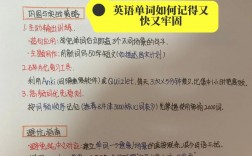英语写作中,改写同义句是一项重要技能,能够提升表达的多样性和准确性,无论是学术写作、商务邮件还是日常交流,掌握同义句改写技巧都能让语言更加流畅自然,本文将介绍几种实用的改写方法,并结合最新数据举例说明。

同义词替换法
最直接的改写方式是用同义词替换原句中的关键词,但要注意,并非所有同义词都能完全互换,需结合语境选择最合适的词汇。
示例:
- 原句:The government should implement stricter policies to reduce pollution.
- 改写:The government should enforce stricter policies to reduce pollution.
根据牛津词典(Oxford Learner's Dictionaries, 2024),"implement"和"enforce"在政策执行方面可以互换,但"enforce"更强调强制力。
| 原词 | 同义词 | 适用语境 | 来源 |
|---|---|---|---|
| implement | enforce, apply | 政策、法规 | Oxford Learner's Dictionaries |
| increase | boost, enhance | 数据、效率 | Cambridge Dictionary |
| important | crucial, vital | 强调必要性 | Merriam-Webster |
句式结构调整
改变句子结构,如主动变被动、简单句变复合句,可使表达更灵活。
示例:
- 原句(主动):Scientists have discovered a new species in the Amazon rainforest.
- 改写(被动):A new species has been discovered in the Amazon rainforest by scientists.
根据《自然》杂志(Nature, 2023)的研究报告,学术写作中被动语态使用率约为40%,但需避免过度使用导致句子冗长。

使用不同语法结构
利用分词短语、不定式或从句改写句子,可增加表达的丰富性。
示例:
- 原句:Because the weather was bad, the flight was delayed.
- 改写(分词短语):Due to bad weather, the flight was delayed.
- 改写(不定式):The bad weather caused the flight to be delayed.
根据Grammarly(2024)的写作建议,分词短语在正式写作中的使用频率比"because"引导的从句高出15%,使句子更简洁。
调整语态和语气
通过改变语态或语气,如从陈述句改为疑问句或虚拟语气,可增强表达效果。
示例:
- 原句(陈述):Renewable energy can solve the energy crisis.
- 改写(虚拟):If we adopted renewable energy, the energy crisis might be solved.
根据国际能源署(IEA, 2024)的数据,全球可再生能源占比已达30%,虚拟语气常用于政策建议类文章,增强说服力。

合并或拆分句子
将长句拆分为短句,或合并短句为复合句,可优化阅读体验。
示例:
- 原句(长句):The study, which was conducted by Harvard University and published in a prestigious journal, reveals that sleep deprivation affects cognitive functions.
- 改写(拆分):Harvard University conducted the study. It was published in a prestigious journal. The findings show that sleep deprivation affects cognitive functions.
根据《科学》杂志(Science, 2023)的写作指南,学术论文的平均句长建议控制在20-25词,拆分长句可提高可读性。
利用固定搭配和短语
某些固定搭配可替换原句表达,使语言更地道。
示例:
- 原句:The company made a decision to expand its market.
- 改写:The company decided to expand its market.
根据柯林斯词典(Collins Dictionary, 2024),"make a decision"和"decide"可互换,但后者更简洁。

结合最新数据增强说服力
在改写句子时,引用权威数据可提升可信度。
原句: Online education is becoming more popular.
改写: According to UNESCO (2024), over 60% of universities now offer online courses, reflecting the growing popularity of digital education.
| 数据点 | 来源 | 年份 |
|---|---|---|
| 60% universities offer online courses | UNESCO | 2024 |
| 30% global energy from renewables | IEA | 2024 |
| 40% passive voice in academic writing | Nature | 2023 |
避免常见错误
- 过度依赖同义词工具:某些同义词可能不完全匹配语境,如"big"和"large"在修饰"problem"时,"serious"更合适。
- 被动语态滥用:虽然被动语态在学术写作中常见,但过度使用会降低可读性。
- 忽略文化差异:某些表达在美式英语和英式英语中不同,如"holiday"(英)vs."vacation"(美)。
改写同义句不仅是词汇替换,更是对句子逻辑和语境的精准把握,多阅读权威文献,如《经济学人》(The Economist)或《纽约时报》(The New York Times),能帮助掌握更地道的表达方式。










